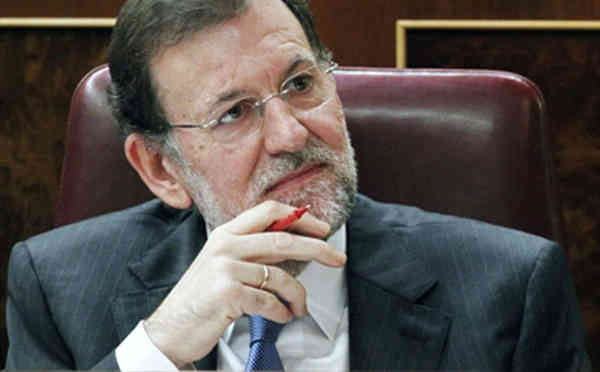-
Tips for becoming a good boxer - November 6, 2020
-
7 expert tips for making your hens night a memorable one - November 6, 2020
-
5 reasons to host your Christmas party on a cruise boat - November 6, 2020
-
What to do when you’re charged with a crime - November 6, 2020
-
Should you get one or multiple dogs? Here’s all you need to know - November 3, 2020
-
A Guide: How to Build Your Very Own Magic Mirror - February 14, 2019
-
Our Top Inspirational Baseball Stars - November 24, 2018
-
Five Tech Tools That Will Help You Turn Your Blog into a Business - November 24, 2018
-
How to Indulge on Vacation without Expanding Your Waist - November 9, 2018
-
5 Strategies for Businesses to Appeal to Today’s Increasingly Mobile-Crazed Customers - November 9, 2018
Inconclusive Spanish Elections Usher In Period Of Political Uncertainty
Prime Minister Mariano Rajoy confirmed on Monday that he wanted after the election victory of his people’s Party (PP) form a Government.
Advertisement
The Spanish parliament will convene January 13, when King Felipe VI will begin meeting with parties to determine which is best poised to form a government before he nominates a candidate for Prime Minister, who must then win a parliamentary vote of approval before being appointed.
But Rajoy cautioned that he would reach out only to parties defending the unity of Spain or its European commitments – appearing to rule out far-left, anti-austerity Podemos and two Catalan separatist groupings that secured 17 parliamentary seats.
“Spain can not afford a period of political lack of clarity that would spoil the progress achieved during these years”, Rajoy said.
The Socialists (PSOE) followed suit, with number two Cesar Luena saying his party would block any government led by Rajoy, whose drastic spending cuts, tax rises and health reforms over the past four years have proved deeply unpopular.
The outcome of the most-closely fought election in Spain’s modern history has plunged the country into turmoil as it was just starting to recover from a devastating financial crisis.
But the political instability provoked a drop Monday in Madrid’s stock market, with shares on the IBEX 35 falling 2.8 percent in early trading before a slight recovery, the BBC reported.
Although the ruling right-of-center Popular Party won the most votes, it failed to retain its parliamentary majority and will try to cobble together a coalition or minority government.
Rajoy’s future as leader of the PP is now in doubt, but he will be expected anyway to seek out a political deal with the new centrist Ciudadanos (Citizens) party, which was on course for between 47 and 50 seats. Neither of the country’s largest traditional two parties, the conservative PP or the socialist PSOE, won enough seats to form a coalition with their potential new political allies.
Ciudadanos leader Albert Rivera called on his Socialist counterpart Pedro Sánchez to join him in abstaining in order to allow Mr Rajoy to govern. Voters blamed the PP for its failure to tackle corruption and massive unemployment across the country.
The absolute majority lost its conservatives, yet wants to lead Spain Prime Minister Rajoy the new Government. The nominee must receive a majority of votes in parliament in a first round to take office, or the most votes in the second round.
Advertisement
However, Pablo Iglesias, leader of the anti-austerity Podemos, warned that he would demand a referendum on independence for Catalonia in return for his party’s support.





























